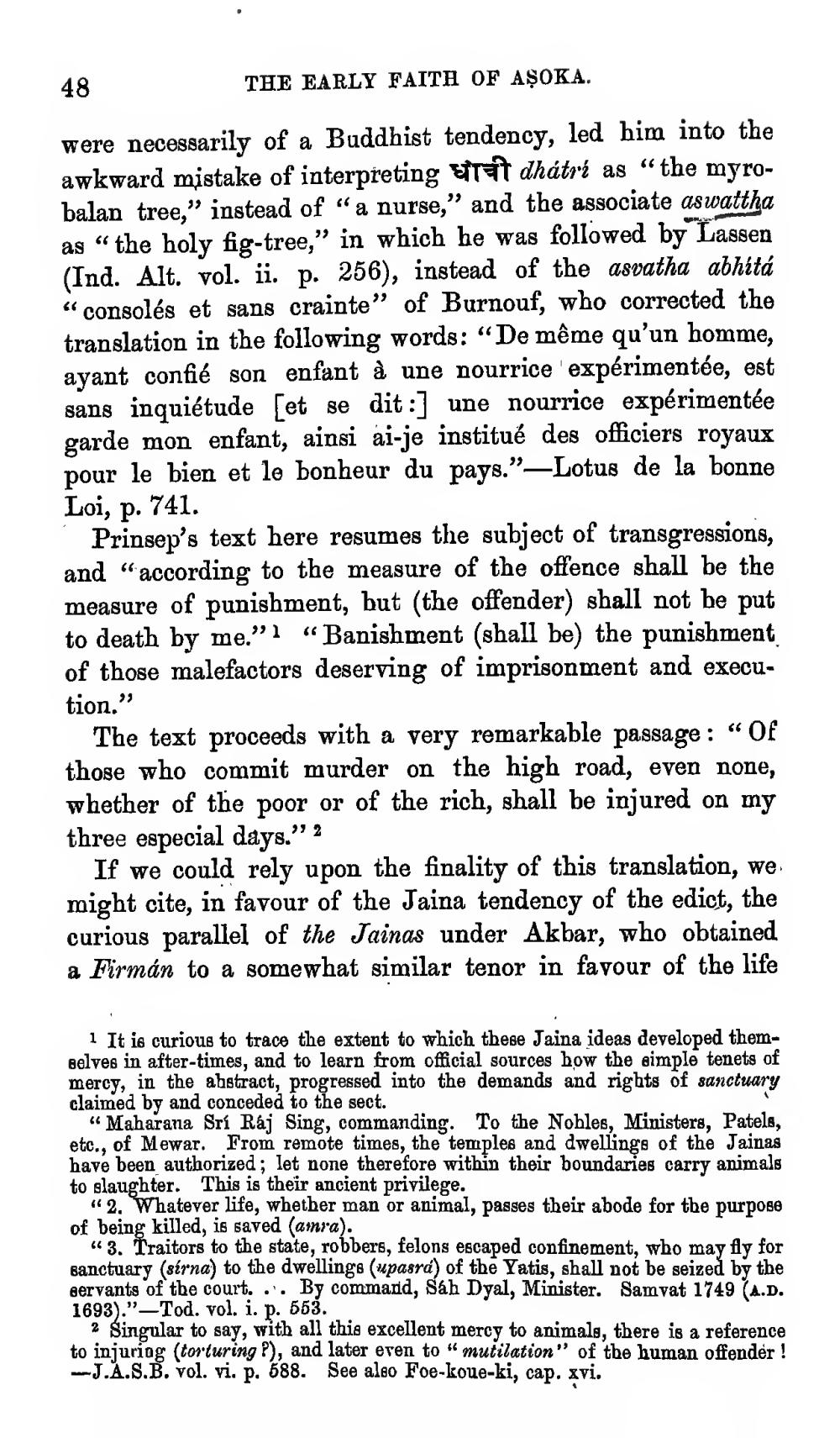________________
48
THE EARLY FAITH OF AŞOKA.
were necessarily of a Buddhist tendency, led him into the awkward mistake of interpreting wat dhátré as “the myrobalan tree," instead of "a nurse," and the associate aswattha as “the holy fig-tree,” in which he was followed by Lassen (Ind. Alt. vol. i. p. 256), instead of the asvatha abhitá “consolés et sans crainte” of Burnouf, who corrected the translation in the following words: “De même qu'un homme, ayant confié son enfant à une nourrice 'expérimentée, est sans inquiétude [et se dit:] une nourrice expérimentée garde mon enfant, ainsi ai-je institué des officiers royaux pour le bien et le bonheur du pays.”—Lotus de la bonne Loi, p. 741.
Prinsep's text here resumes the subject of transgressions, and “according to the measure of the offence shall be the measure of punishment, but (the offender) shall not be put to death by me.” “Banishment (shall be) the punishment of those malefactors deserving of imprisonment and execu
tion."
The text proceeds with a very remarkable passage : “Of those who commit murder on the high road, even none, whether of the poor or of the rich, shall be injured on my three especial days." 2
If we could rely upon the finality of this translation, we might cite, in favour of the Jaina tendency of the edict, the curious parallel of the Jainas under Akbar, who obtained a Firmán to a somewhat similar tenor in favour of the life
1 It is curious to trace the extent to which these Jaina ideas developed themselves in after-times, and to learn from official sources how the simple tenets of mercy, in the abstract, progressed into the demands and rights of sanctuary claimed by and conceded to the sect.
"Maharana Sri Raj Sing, commanding. To the Nobles, Ministers, Patels, etc., of Mewar. From remote times, the temples and dwellings of the Jainas have been authorized ; let none therefore within their boundaries carry animals to slaughter. This is their ancient privilege.
"2. Whatever life, whether man or animal, passes their abode for the purpose of being killed, is saved (amra).
“3. Traitors to the state, robbers, felons escaped confinement, who may fly for Banctuary (sirna) to the dwellings (upasrá) of the Yatis, shall not be seized by the servants of the court. .'. By command, Sáb Dyal, Minister. Samvat 1749 (A.D. 1693)." -Tod. vol. i. p. 553.
2 Singular to say, with all this excellent mercy to animals, there is a reference to injuriog (torturing?), and later eren to " mutilation" of the human offender!
J.A.S.B. vol. vi. p. 588. See also Foe-koue-ki, cap. xvi.




